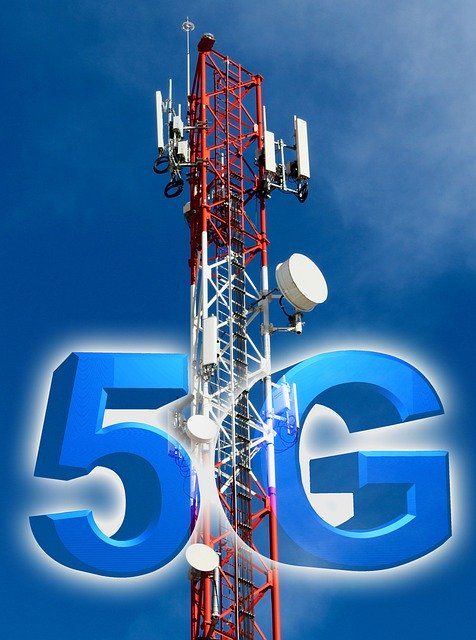It has been a long time in the works, but finally, 5G is starting to roll out across every country in the world. Billed as being the fastest low latency service ever, 5G will bring some significant shifts to everything we do, even the future of sports. The advantages over 4G are said to be the fact that 5G operates shorter ranges with higher frequencies. This gives the distinct benefit of being able to support billions of users all accessing at the same time and yet having no latency. When it comes to power consumption, 5G antennas consume significantly less, which makes this a superior protocol when it comes to small battery-powered devices. So, what does this mean in real terms?
For Industry
The introduction of 5G will revolutionize industrial and commercial processes. The use of location beacons already tracks packages through shipping and delivery, but this will be expanded massively within the next two years. In agriculture, soil sensors and cameras can determine more effective pesticide use and watering schedules and 5G will also mean that dangerous and repetitive jobs can be deployed to robots.
Autonomous Vehicles
The majority of road traffic accidents can be traced back to human error. Driverless cars can be programmed to ensure the mistakes never occur. However, for that to work the support offered by 5G is needed because each vehicle will need communication with everything in the vicinity from traffic lights, pavements, other cars, and more. It has been noted that only 5G has the capability required to ensure the latency is not causing miscommunication. But it is estimated that 1.25 million lives could be saved each year by autonomous vehicles.
Sports Venues
Another benefit of 5G will come in the form of sports and broadcasting. It will add to the glamour and showcasing, with the Korean baseball team the SK wyverns demonstrating a virtual Wyvern at a pre-game match last year. This augmented reality mythical creature wowed the crowds and was available for fans who were in the stadium but also on phones for those that weren’t. It also translated to the television broadcast. It will also increase the quality of live game broadcasting in general and will enable real-time sports betting at the latency that comes with 4G makes this impossible at the moment as bets can be placed when the outcome is already known. Finally, the virtual referee will be enhanced in various games from tennis to football and many more.
Smart Cities
Smart technology is increasing in homes and cities all over the world. Recently San Diego was able to install smart lighting across the city. This actually dims street lighting when there is no one around and has saved them almost $2,000,000 in just one year when it comes to the electricity bill. 5G will increase the capacity of smart technology in cities and enable each one to have many more devices that will be able to use AI technology to control traffic flow, how power is used, protect air quality, and maintain public safety. San Francisco has used gunshot detection microphones which have been placed in areas of high crime, and this led to a 35% drop in incidents involving guns. So, the increased capability is a welcome step for many different reasons.
Virtual Medicine
The global pandemic has caused issues with accessing medical services, and there are only so many doctors, and primary healthcare physicians can do over the phone. With high definition quality and low latency available through 5G wireless networks, it will make visiting the virtual doctor a lot easier than grainy, interrupted pictures that can’t really help. There are also wearable medical devices that are able to transmit vital health data straight to the doctors; for example, at the moment a blood glucose monitor is available that uploads data to an app. Another exciting prospect is telesurgery, which will mean specialist surgeons can remain in one hospital and yet be able to control equipment located hundreds of miles away. Initial trials have been carried out successfully in China on a pig.







Recent Comments